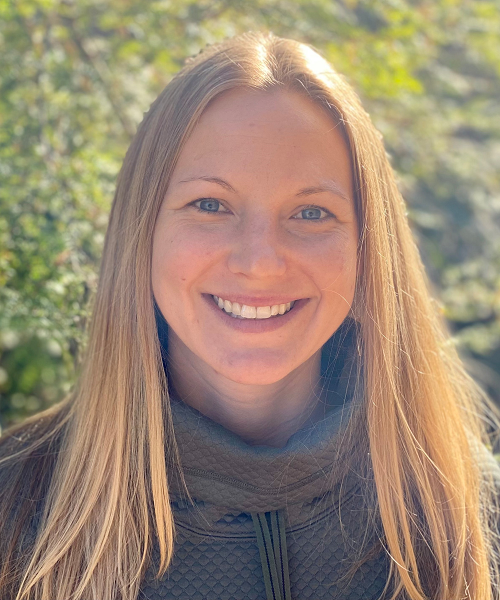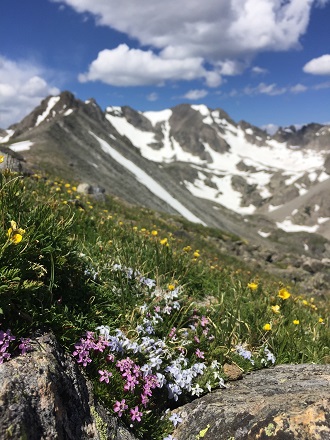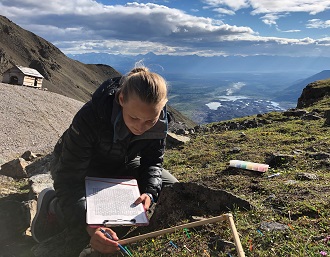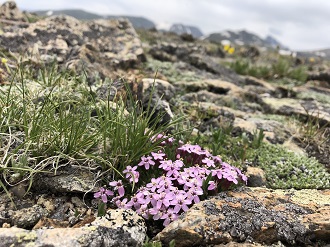About the department:
Our department is organized taxonomically (plant biology), so our faculty come from a wide range of disciplines and perspectives but we’re all plant nerds at heart! At the same time, there’s an incredible community of ecologists and evolutionary biologists across departments at UGA, and this has led to a really collaborative environment with lots of interdepartmental interaction.
About the research:
My lab studies the ecology and evolution of wild plant populations, with an emphasis on responses to global change. We’re particularly interested in how plants respond to environmental change in space and time, including local population dynamics, species’ range shifts, and the interactions between climate change and other drivers such as biotic effects or fragmentation. Projects in the lab often use a combination of field and greenhouse experiments, long-term observational data, and demographic models to parse the patterns and drivers of individual fitness, population persistence, and geographic distributions.
What has been the biggest challenge as a new PI so far?
Far and away the biggest challenge has been starting a new lab in the middle of a pandemic. I started my position just a few months before the university closed due to COVID-19, and learning how to navigate a new university system, teaching, ordering equipment, planning research, and recruiting was incredibly difficult with the uncertainty and shifting landscape of the pandemic. Luckily, I had some great colleagues and department staff who helped me through the process!!
What has been the biggest surprise so far about being a new PI?
The biggest surprise has been simply understanding what the job of a PI really is. Before I started, I talked to a lot of people and so I had some expectation of the challenges around time management, advising, and project administration. But on some level, I still expected to work more or less how I had as a grad student and postdoc, albeit busier. However, I quickly found that my previous work strategies weren't nearly as effective in my new role. Instead of being able to focus on completing a big task from start to finish (e.g., analyze a dataset or write the first draft of a paper), I found myself trying to do the hundred little daily things needed to keep an entire lab functional and productive. It's taken me some time to recognize that my job is no longer "scientist" (something I'd just started to figure out how to do!), but instead "manager of a group of scientists", and that takes an entirely different set of skills.
Do you have a funny story to share from an Evolution Meeting?
I remember one afternoon at the 2014 meeting in Raleigh. I'd come back after a break and noticed that the building was almost empty. I was thinking, "Where is everybody?" Turns out the US team was playing in the soccer world cup, and everyone was taking an extended lunch in the surrounding sports bars and pubs to watch the game. I'd never followed sports all that closely, but had a great time talking science and soccer that afternoon.
When was your first Evolution Meeting, and how did it affect your career?
My first meeting was in 2013 in Snowbird, Utah. It was my first major conference and my first talk, and I was feeling pretty nervous and shy in the beginning. I ended up having a great time! I got helpful feedback on my work, made a lot of new friends, and even got to meet a few of my science heroes. It was a really validating experience as a new graduate student, and Evolution is still my favorite conference.
Do you teach evolution? What is the hardest concept to teach?
I teach evolution in my introductory biology and grad courses. I think the most difficult concept is also one of the most fundamental -- what do we mean when we talk about fitness? Most of us have some hazy idea of survival and reproduction, but it's difficult and fascinating to delve into the nuance of life history theory, inclusive fitness, density-dependence, selfish genes, etc.
What is your favorite app?
It sounds silly, but Scanner Pro was a game-changer for me. I do a lot of backpacking field research trips in remote alpine environments, and I've had clipboards ripped out of my hands by a sudden gust of wind. Being able to quickly combine 3-4 days worth of paper datasheets into a single pdf for temporary backup has saved me a lot of heartache. It sure beats having hundreds of individual pictures of datasheets on my phone!
What book should every evolutionary biologist read?
Maybe this is obvious, but of course I have to say "On the Origin of Species". I was lucky enough to have a committee member require that I read it for my comprehensive exams, otherwise I might have gone through my entire PhD without actually reading this classic. I'm continually amazed by how many of the current hot-topics and debates in evolutionary biology are addressed in that book. Is there anything that Darwin didn't think about first?
What one piece of advice would you give to a starting graduate student?
Read some actual dissertations! Most beginning graduate students have only read individual papers, and don't have a clear understanding of what a dissertation really looks like. Choose early career biologists you admire and/or have the type of job you want. As you read, think about 1) how they frame their work in terms of inter-related chapters, 2) what alternative approaches they could have used to tackle their questions, and 3) the pros/cons of the approaches they ultimately took. This is really valuable when trying to plan your own dissertation project. It also helps highlight that even rockstar scientists usually have 1-2 "safe" chapters in their dissertation. Remember that you're preparing for an entire research career, and you don't need to definitively answer all the questions you find interesting in your Ph.D.
What one piece of advice would you give to a postdoc?
I'll share the most valuable advice I was given, which is to think about the skill set you didn't get from your PhD but that you'll want when building your long-term research program. Then be purposeful in using your postdoc to get those skills. For me, that was demographic modeling!
How was your first faculty meeting?
My first faculty meeting was actually part of a job search for another position in the department. It felt surreal to suddenly be on the other side of the curtain!
Do you remember making any mistakes as a trainee; how did you recover?
Yes, this one is seared into my memory! After I published one of my PhD chapters involving a demographic model, a colleague reached out to say he was having trouble replicating my results. I dug back into my code and found an error in how I had calculated a vital rate. At the time, I was panicked and I remember asking my advisor if it meant we had to retract the paper. The mistake ended up being minor and didn't affect the overall conclusions, so we issued a correction to update the necessary tables. It was a really valuable learning experience for me. Not only has it made me slightly obsessive about checking my code, it also helped me to understand that scientists are human and the importance of fostering a supportive culture that empowers people to own up to and correct their mistakes.
What do you enjoy doing in your free time?
Usually I'm out in the north Georgia woods somewhere!! I love hiking and backpacking, and also do volunteer maintenance for the Appalachian trail. When the weather or mosquitoes drive me inside, I like to read, cook, or hang with my 3 dogs.
 Megan DeMarche
Megan DeMarche

